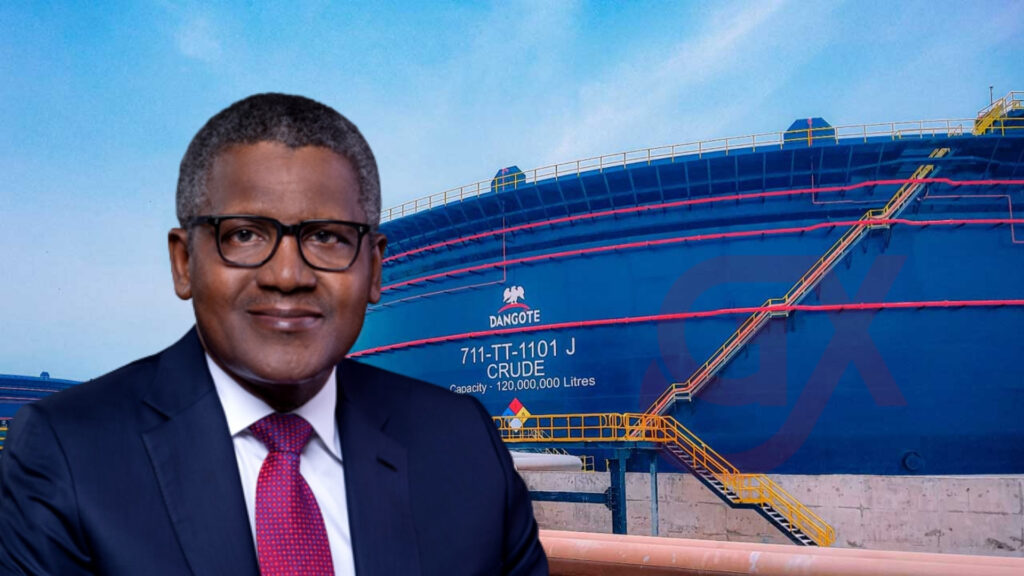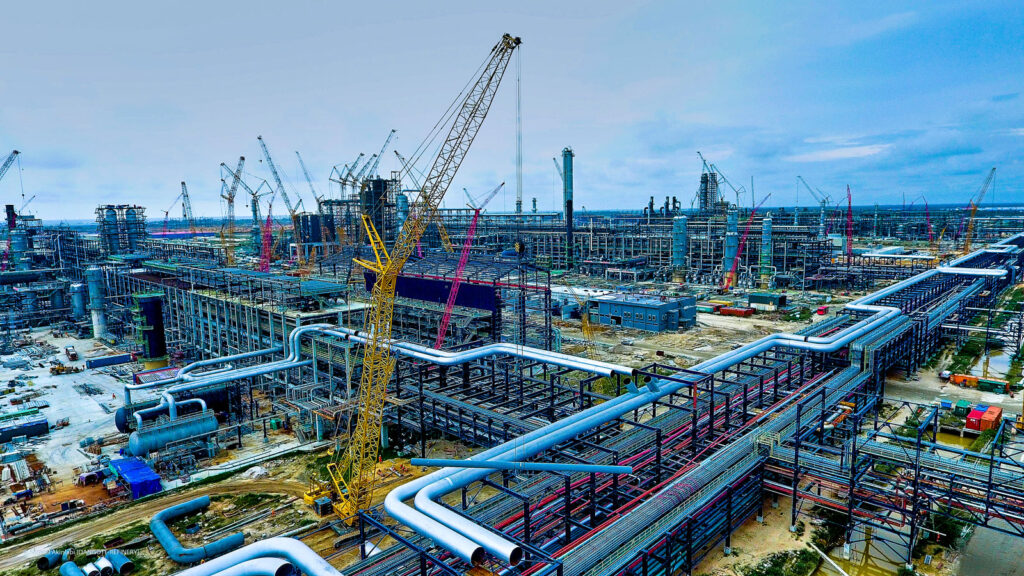The Dangote Petroleum Refinery’s plan to distribute fuel directly to end-users has sparked intense debate among stakeholders in Nigeria’s downstream oil sector.

The Natural Oil and Gas Suppliers Association of Nigeria (NOGASA) has warned that bypassing traditional distribution channels could destabilize the supply network, trigger long-term scarcity, and threaten thousands of jobs across the country.
Speaking at NOGASA’s Annual General Meeting in Abuja, the association’s president, Bennett Korie, urged Dangote Group to reconsider its strategy and engage in dialogue with key industry players.
He cited the Nigerian National Petroleum Company Limited’s (NNPCL) failed attempt at direct distribution as a cautionary tale, arguing that centralizing refining, distribution, and retail under one entity is unsustainable.
Korie emphasized that while NOGASA supports the refinery’s operations, the decision to deploy 4,000 Compressed Natural Gas-powered trucks for direct supply to manufacturers, telecom firms, and other large consumers could sideline over 50,000 filling stations and disrupt the existing supply chain. He called on President Bola Tinubu to intervene and ensure that independent marketers remain integral to the distribution process.
Echoing these concerns, Billy Gillis-Harry, President of the Petroleum Products Retail Outlet Owners Association of Nigeria (PETROAN), warned that Dangote’s move could lead to monopolistic practices. He pointed to the cement industry as a precedent, where market consolidation led to dramatic price hikes – from ₦115 per bag to over ₦10,000.
Gillis-Harry also noted that depot prices for petrol surged from ₦815 to ₦870 per litre in just one day, with filling station operators losing up to ₦80 per litre. He urged the Nigerian Midstream and Downstream Petroleum Regulatory Authority (NMDPRA) and the Minister of State for Petroleum Resources to implement pricing regulations and safeguard jobs in the sector.

In response, Dangote Group defended its plan, stating that the direct distribution model aims to eliminate logistics costs, improve efficiency, and save Nigerians over ₦1.7 trillion annually.
The refinery, which recently increased its capacity from 650,000 to 700,000 barrels per day, maintains that its fleet of 4,000 trucks is insufficient to monopolize the market and that there is room for collaboration with existing marketers.
Meanwhile, lawmakers have begun reviewing the refinery’s distribution strategy to ensure compliance with the Petroleum Industry Act (PIA). Ahmed Saba, representing the House Committee on Petroleum Resources (Downstream), assured stakeholders that the National Assembly is monitoring the situation to promote fair competition and transparency.
As the Dangote refinery prepares to launch its direct distribution initiative on August 15, the future of Nigeria’s fuel supply chain hangs in the balance, with calls for regulatory oversight and inclusive dialogue growing louder.
